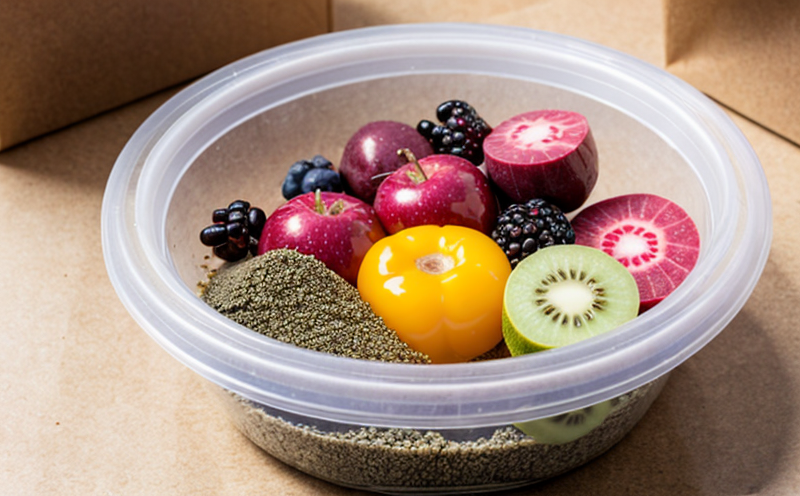Raw food storage inspection
The process of raw food storage inspection is crucial in ensuring that food safety and hygiene standards are met. This service focuses on providing comprehensive testing to evaluate the quality, safety, and hygiene conditions under which raw foods are stored before they reach consumers or processing stages.
Our team of experts ensures that all aspects of the storage environment meet stringent international standards such as ISO 22000:2018. Raw food storage inspection involves not only checking the physical conditions but also assessing the potential microbial growth, chemical contamination, and other factors that could affect food safety.
The primary goal is to prevent cross-contamination between raw foods and processed or cooked products. This includes verifying the cleanliness of refrigeration units, ensuring proper temperature controls are maintained throughout the storage process, and checking for any signs of spoilage or deterioration in the stored raw materials.
Our technicians use advanced laboratory equipment and methods to conduct thorough inspections. They employ techniques like microbiological culturing, chemical analysis using HPLC (High-Performance Liquid Chromatography), and sensory evaluation by trained personnel. These tests help identify potential hazards early on so corrective actions can be taken promptly.
In addition to these technical assessments, we also consider the overall hygienic practices followed during storage. This encompasses personal hygiene of staff handling food items, cleanliness of equipment used in preparation areas, proper labeling and segregation of different types of raw foods, etc.
By providing reliable inspection reports based on our findings, we assist our clients in maintaining compliance with local regulations as well as international standards relevant to their industry. Such adherence not only protects consumers but also enhances brand reputation by ensuring product integrity from source to shelf.
The importance of raw food storage cannot be overstated given its role in preventing outbreaks of foodborne illnesses. A single incident can have severe consequences both financially and reputationally for businesses operating within this sector. Therefore, investing in regular inspections is essential for any company serious about protecting public health while upholding quality standards.
Our services extend beyond mere compliance; they aim to foster continuous improvement by offering insights into best practices that can be implemented across various stages of production. From initial procurement through final packaging, our comprehensive approach ensures every link in the supply chain contributes positively towards achieving optimal food safety outcomes.
Customer Impact and Satisfaction
- Enhanced Food Safety: By ensuring that raw foods are stored under optimal conditions, we help prevent contamination which reduces the risk of foodborne illnesses.
- Increased Customer Trust: Meeting stringent hygiene standards builds confidence among consumers about the safety and quality of products offered by businesses.
Our rigorous inspection processes ensure that every aspect of raw food storage is closely monitored, leading to higher levels of customer satisfaction. This translates into loyal customers who continue purchasing from establishments known for their commitment to maintaining high standards.
Competitive Advantage and Market Impact
- Compliance with Regulations: Adherence to international standards such as ISO 22000:2018 provides peace of mind knowing that all operations comply with legal requirements.
- Promotion of Brand Reputation: Consistently maintaining quality and hygiene improves brand image, attracting more customers and enhancing market position.
Beyond mere compliance, our services contribute significantly to a company’s competitive edge by demonstrating commitment to excellence. This translates into greater market share as consumers increasingly favor businesses that prioritize food safety above all else.
Use Cases and Application Examples
In the context of food manufacturing companies, raw food storage inspection plays an integral part in safeguarding product integrity throughout the supply chain. For instance, a bakery company might store fresh dough before baking into loaves. Our inspections would ensure that this dough remains uncontaminated during its time in refrigeration.
Similarly, supermarkets rely heavily on proper cold chain management to keep perishable items like meat and dairy products fresh until they reach consumers. Regular inspections help maintain these critical conditions throughout the distribution network.
For restaurants and food service providers, the inspection of raw ingredients arriving directly from suppliers is vital for maintaining consistent quality across menus. By verifying that these items meet required standards before preparation begins, potential risks are mitigated early in the process.





